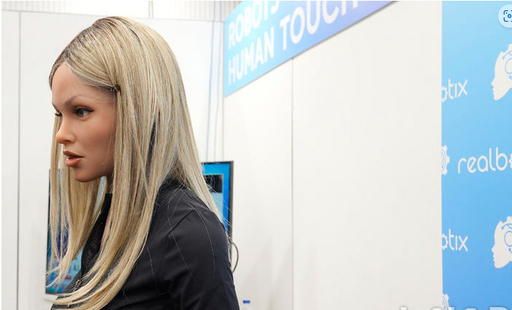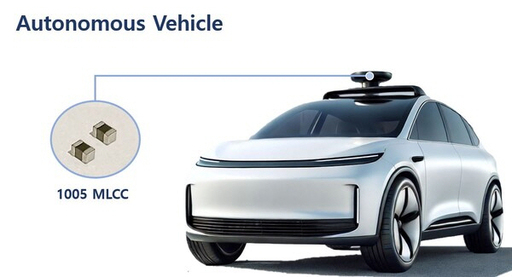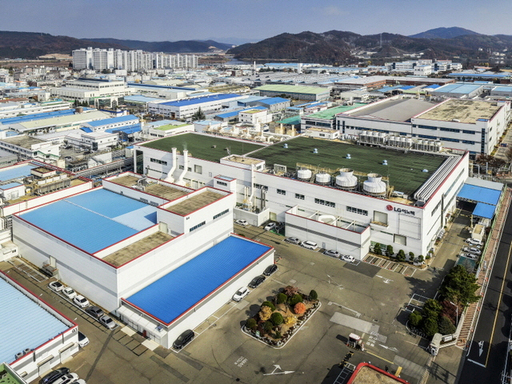



Amid the global economic downturn and the tariff risks posed by the Trump administration, the domestic information technology (IT) component industry is seeing a positive turn. Domestic component companies had been struggling with poor performance due to the downturn in markets such as electric vehicles and smartphones. However, with the smartphone market recovering and the emergence of new markets like humanoid robots and autonomous driving, they are starting to benefit. Camera modules, which are core components for these markets, are seeing increased demand. The component industry is focusing on high-value-added products to secure future growth momentum.
According to market research firm Omdia on the 11th, global smartphone shipments are expected to reach 1.223 billion units this year, a 7.1% increase from last year (1.141 billion units). Since last year, the smartphone market has been showing signs of recovery. In the fourth quarter of last year, global smartphone shipments totaled 328.4 million units, a 6% increase compared to the previous quarter.
Domestic component companies set record-high revenues last year. Samsung Electro-Mechanics has focused on providing components for Samsung Galaxy, while LG Innotek and LG Display have concentrated on components for Apple iPhones. As a result, the supply of high-value products such as high-performance camera modules has increased, boosting performance. This year, it is expected that performance will continue to improve, as both Samsung Electronics and Apple are set to release mid- to low-priced models, such as the Galaxy A series and iPhone SE4. LG Innotek will supply the front and rear camera modules for the iPhone SE4, while LG Display will supply OLED panels for the iPhone SE4.
Jeong Cheol-dong, CEO of LG Display, stated at the '4th Generation OLED TV Panel' technology presentation last month, "We have worked hard on development, quality, and cost competitiveness over the past year, and with our differentiated capabilities, we expect to achieve results this year." He added, "It is difficult to give specific numbers by quarter, but we are optimistic that this year will be a turnaround year."
The tariff policies of the Trump administration are also seen as a positive factor. The U.S. president's tariffs on China are expected to reduce the use of Chinese components in Apple products, which could result in indirect benefits for domestic companies.
What is particularly noteworthy is the expansion of the humanoid and autonomous driving markets. As these sectors, identified as future growth drivers by the industry, expand, component companies are boosting their profitability. Core components of humanoid robots and autonomous vehicles, such as camera modules, are a key focus for domestic suppliers.
In fact, Samsung Electro-Mechanics is expected to achieve a record-breaking revenue of 10.2941 trillion won and an operating profit of 735 billion won in 2024, marking the company's first time exceeding 10 trillion won in annual revenue. LG Innotek's automotive parts division saw a 2% decline in annual sales compared to the previous year, but its order backlog increased by 27%, reaching 13.6 trillion won, a 27% rise from the previous year.

Domestic component companies are now fully entering the technological leadership competition by focusing on high-value-added products.
Samsung Electro-Mechanics identifies "Mi-RAE" as its new business area, concentrating on industries such as robotics and AI. Specifically, the company plans to intensify its efforts to target the AI semiconductor substrate market, particularly FC-BGA (Flip-Chip Ball Grid Array). FC-BGA is a next-generation substrate that allows AI semiconductor chips to be densely connected to a mainboard without the need for wires. Additionally, Samsung Electro-Mechanics aims to develop and supply components such as MLCCs and camera modules needed for humanoid robots.
LG Innotek, which generates over 70% of its revenue from Apple-related sales, is accelerating its efforts to target new businesses in sectors such as automotive, robotics, and semiconductors. It is reported that more than half of the 14 humanoid robots equipped with NVIDIA's AI technology will feature LG Innotek's camera modules.
Additionally, LG Innotek is speeding up its entry into the AI semiconductor substrate market by beginning mass production of FC-BGA for global big tech companies.
Moon Hyuk-su, CEO of LG Innotek, stated at the "CES 2025" held last month, "We have recently begun mass production of FC-BGA for North American big tech companies," and added, "In addition, we are pursuing development collaborations with several global big tech companies."
ChatGPT를 사용하여 번역한 기사입니다.


 Copyright ⓒ 메트로신문 & metroseoul.co.kr
Copyright ⓒ 메트로신문 & metroseoul.co.kr
Copyright ⓒ Metro. All rights reserved. (주)메트로미디어의 모든 기사 또는 컨텐츠에 대한 무단 전재ㆍ복사ㆍ배포를 금합니다.
주식회사 메트로미디어 · 서울특별시 종로구 자하문로17길 18 ㅣ Tel : 02. 721. 9800 / Fax : 02. 730. 2882
문의메일 : webmaster@metroseoul.co.kr ㅣ 대표이사 · 발행인 · 편집인 : 이장규 ㅣ 신문사업 등록번호 : 서울, 가00206
인터넷신문 등록번호 : 서울, 아02546 ㅣ 등록일 : 2013년 3월 20일 ㅣ 제호 : 메트로신문
사업자등록번호 : 242-88-00131 ISSN : 2635-9219 ㅣ 청소년 보호책임자 및 고충처리인 : 안대성